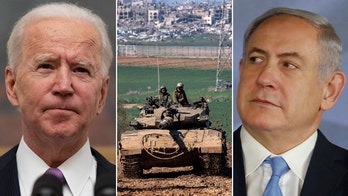In a tit-for-tat response to the United Kingdom's expulsion of a Russian defense attaché over spying allegations, Russia has declared Britain's defense attaché persona non grata and given the diplomat a week to leave the country. The move intensifies the already strained diplomatic relations between the two nations.

Russia's Foreign Ministry announced in a statement on Thursday that it had summoned a representative of the British Embassy in Moscow to express its "strong protest in connection with the unfriendly and groundless decision" to expel the Russian attaché from London. The ministry condemned the move as "a politically motivated action of clearly Russophobic nature, which is causing irreparable damage to bilateral relations."

In response, Russia has declared Britain's defense attaché Adrian Coghill persona non grata and gave him a week to leave the country. The ministry vowed "further retaliatory steps" to follow.
The British government's decision to expel the Russian defense attaché on May 8 stemmed from allegations of espionage and sabotage by individuals acting on behalf of Russia. London accused Moscow of planning to sabotage military aid for Ukraine in Germany and Poland, conducting spying operations in Bulgaria and Italy, and engaging in cyber and disinformation activities. The government also cited air space violations and the jamming of GPS signals to disrupt civilian air traffic.
The diplomatic spat between the UK and Russia is the latest in a series of escalating tensions between the two countries. The UK has long accused Russia of targeted killings, espionage, and cyberattacks on British lawmakers. The situation has further deteriorated since Russia's invasion of Ukraine, prompting Britain to sanction hundreds of wealthy Russians and crack down on money laundering through London's markets.
The mutual expulsions of diplomats have further strained the already tense diplomatic relations between the UK and Russia. The tit-for-tat actions indicate a lack of willingness to resolve the underlying issues and could potentially lead to further escalation.
The current standoff between the two countries highlights the growing divide between the West and Russia. The UK's accusations of espionage and sabotage have been met with strong denials from Moscow, underscoring the deep distrust that exists between them.
Despite the diplomatic standoff, there have been calls from both sides for de-escalation and a return to dialogue. However, given the current level of mistrust and the ongoing conflict in Ukraine, it remains uncertain whether such appeals will be heeded.
The history of espionage and diplomatic expulsions between the UK and Russia dates back to the Cold War era. The two countries have engaged in numerous tit-for-tat expulsions over alleged spying activities, reflecting the ongoing rivalry and mistrust between them.
Russia has consistently denied the allegations of espionage and sabotage made by the UK. Moscow claims that the expulsions are politically motivated and designed to damage Russia's reputation. The Kremlin has accused the UK of Russophobia and of using the Ukraine conflict as a pretext to target Russia further.
The UK has maintained that its actions are necessary to protect national security and safeguard critical infrastructure. London has accused Russia of a pattern of malicious behavior and of posing a threat to the UK's interests. The British government has emphasized the importance of holding Russia accountable for its actions and of sending a strong deterrent message.










